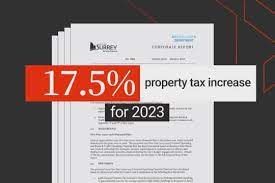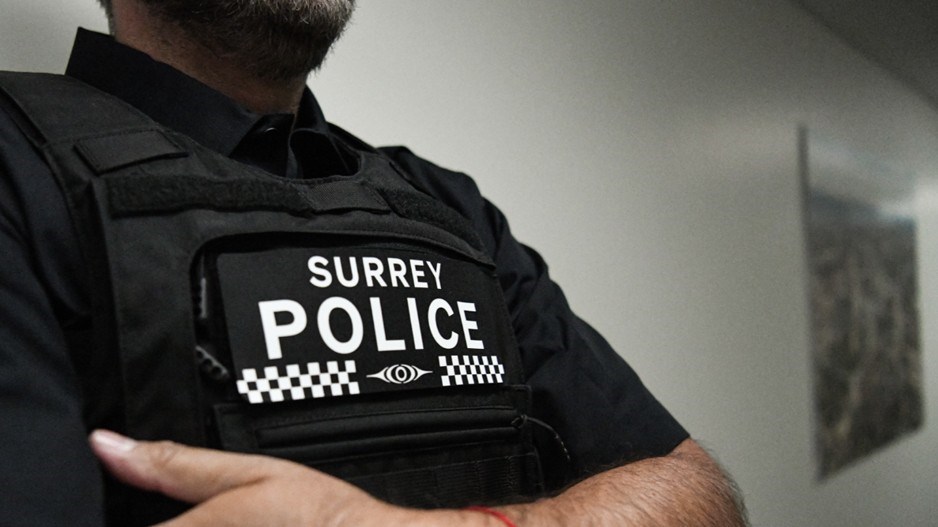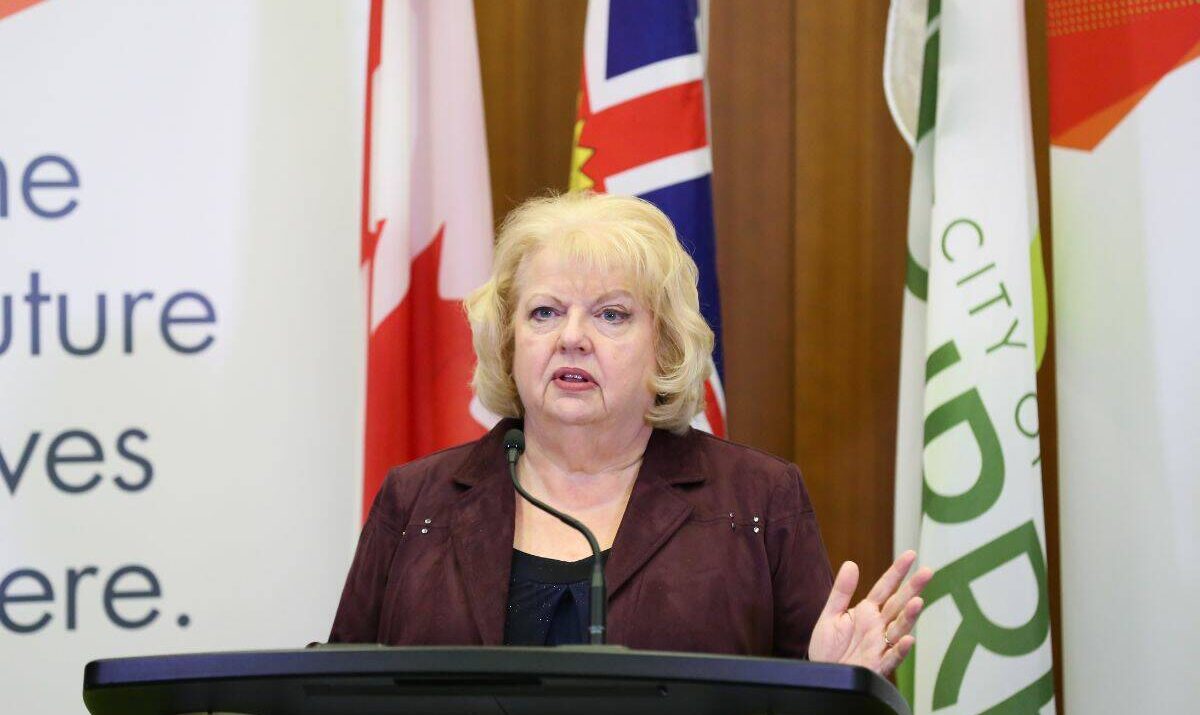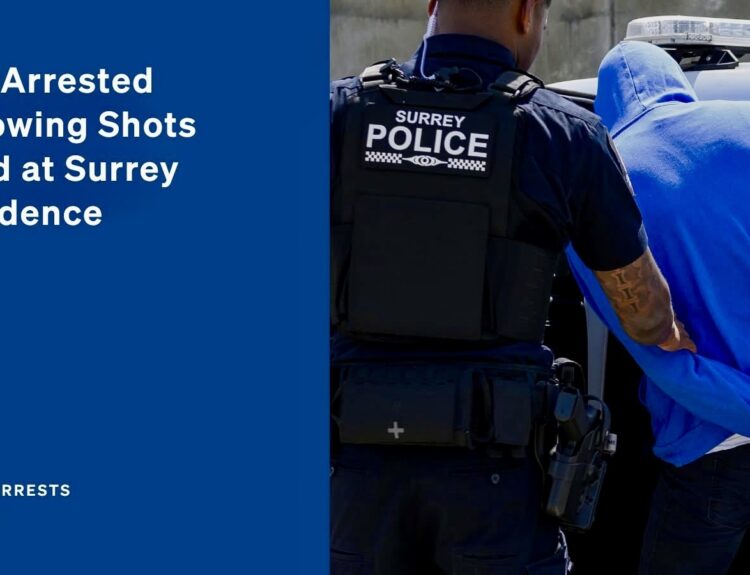Doug Paaji’s Financial Mismanagement To Blame For Surrey’s Finances, Says Surrey First!
Surrey is proposing a whopping 17.5 percent tax increase, citing the Surrey Police Service (SPS)-RCMP debacle for soaring city budget. Surrey First Councillors Linda Annis and Mike Bose say former mayor Doug McCallum’s financial mismanagement at city hall “has finally caught up with the city’s finances” and taxpayers are now facing “sticker shock” with threats of a 17.5 per cent tax increase worth more than $400 for the average home.
By PD Raj – Senior Writer DESIBUZZCanada
SURREY – Surrey is proposing a whopping 17.5 percent tax increase, citing the Surrey Police Service (SPS)-RCMP debacle for soaring city budget.
The City said this week that the 2023 Draft Operating Budget has been built without a decision on policing in Surrey, and the financial model is predicated on retaining the RCMP as the police of jurisdiction. While maintaining the RCMP will cost an estimated $235M less to operate over five years than the Surrey Police Service (SPS), there remains a shortfall of $116.6M created by the transition process. As a result, a proposed 9.5% General Property Tax increase to fund the 2023 Policing.

“It is now clear just how much this misguided experiment to change policing in Surrey is costing Surrey residents and businesses,” said Mayor Brenda Locke. “The money wasted by the policing transition, combined with the so-called 2.9% property tax rate for four years implemented by the previous Council, means we are now having to play catch up on core City services, such as the hiring of firefighters and bylaw officers. Surrey can ill afford to continue with the police transition and we are starting to set our finances straight with this budget.”
The property tax increases proposed in the 2023 General Operating Budget are as follows:
*9.5% General Property Tax increase to fund Policing Shortfall (approximately $219 for the average single-family home).
*7.0% General Property Tax increase (approximately $161 for the average single-family home) to fund:
General inflationary pressures
*Hiring of additional 25 police officers, 20 firefighters and 10 bylaw officers for 2023
City Wide Operations (non-public safety)
*1.0% Roads and Traffic Levy. (approximately $23 for the average single-family home).
If the proposed increases are approved, the City’s portion of property taxes for the average assessed single family home in the City of Surrey would be $3,000, which would place Surrey in the middle for property taxes collected for the respective average assessed home in Metro Vancouver.

A public meeting of the Finance Committee will be held March 6 at 2pm to consider the 2023 Budget. The public can provide comment in person at the Finance Committee meeting or through written submissions. The deadline for written comments is noon on Friday, March 3, 2023.
Surrey First Councillors Linda Annis and Mike Bose say former mayor Doug McCallum’s financial mismanagement at city hall “has finally caught up with the city’s finances” and taxpayers are now facing “sticker shock” with threats of a 17.5 per cent tax increase worth more than $400 for the average home.
“Mr. McCallum’s famous and fictitious, 2.9 per cent annual tax increases, his complete lack of a plan to build much-needed infrastructure, his constant deferral of maintenance, a lack of transparency around policing, and the potential cost of shutting down the police transition, have put our city and its taxpayers in a precarious financial position,” said Annis. “At the same time, we’re still dealing with a lot of financial assumptions about the cost of keeping the Surrey Police Service, or continuing with the RCMP, and that lack of solid information has bothered me right from the start. An independent set of eyes on numbers provided by the RCMP and the SPS would have ensured we had the best and most accurate information, something we still do not have, and something that’s critical to making good financial decisions for the city. Facts, not fiction, that’s what we need as we build the 2023 budget.”
Annis said keeping the SPS would save millions in severance costs, but keeping the SPS means higher annual policing costs than those charged by the contracted RCMP.

“The Mayor says the SPS would cost about $250 million more than the RCMP over the next five years, but the SPS disputes that figure,” said Annis. “Again, we don’t have a credible third party checking any of these claims, and as a result, our 2023 budget is being built on sand rather than a bedrock of facts we can count on. For instance, the budget makes a big assumption that if the SPS is disbanded that half of the SPS members would join the RCMP. SPS members are more likely to join another municipal police service, like the Vancouver Police Department, which is looking for 100 new officers. It is unlikely that very many SPS members will decide to join the RCMP, which is a completely different organization and culture. Every police force is hiring, so it is more likely SPS members will go to municipal forces than the RCMP.”
Bose said he wants city hall to look at options, rather than imposing a damaging tax increase on families and businesses in a single year.
“There isn’t a family or business in Surrey that isn’t stretched right now, and the last thing our community needs is city hall making their lives harder,” explained Bose. “This financial mess wasn’t created by the residents of Surrey. But like every mistake made by incompetent and short-sighted politicians, taxpayers are the ones that have to clean it up. So, I’m saying to my colleagues at city hall, we should be looking at ways to limit or reduce the pain.”
Annis said one option would be a more affordable increase brought in gradually over three or four years.
“There’s an old rule in politics that you do the unpopular things early in your term, because people might forget by the next election,” said Annis. “But a 17.5 per cent increase in a single year is a lot more than many people can handle, and I doubt any of us will forget about it down the road. Frankly, it’s incumbent on all of us on council to look at the financial capacity of our citizens and find options that don’t damage families and local businesses over the long term. It’s the least we can do, particularly when the problem we’re facing started right here at city hall in the first place.”
















19 Comments
Anthony Cazorla
6 months agoHmm is anyone else encountering problems with the pictures on this blog loading? I’m trying to find out if its a problem on my end or if it’s the blog. Any suggestions would be greatly appreciated.
olxtoto
5 months agoWow! This could be one particular of the most useful blogs We have ever arrive across on this subject. Basically Wonderful. I’m also an expert in this topic so I can understand your effort.
toto togel
5 months agoI have not checked in here for some time because I thought it was getting boring, but the last few posts are good quality so I guess I¦ll add you back to my everyday bloglist. You deserve it my friend 🙂
basket168 login togel
5 months agoWell I sincerely enjoyed reading it. This post offered by you is very effective for proper planning.
Ligue 1 Live Streaming
5 months agoEste site é realmente demais. Sempre que acesso eu encontro novidades Você também vai querer acessar o nosso site e saber mais detalhes! conteúdo único. Venha descobrir mais agora! 🙂
basket168
5 months agoGood info and straight to the point. I am not sure if this is in fact the best place to ask but do you guys have any thoughts on where to get some professional writers? Thanks 🙂
Hector Haggstrom
2 months agoI know this if off topic but I’m looking into starting my own weblog and was curious what all is required to get setup? I’m assuming having a blog like yours would cost a pretty penny? I’m not very internet savvy so I’m not 100 sure. Any suggestions or advice would be greatly appreciated. Many thanks
slot
2 months agoHello my friend! I want to say that this article is awesome, great written and include approximately all important infos. I would like to look more posts like this .
Auburn Hair Color Ideas
2 months agoI appreciate the balanced perspective you provided here.
Investigator Badges
2 months agoThis is exactly what I was looking for. Thanks for the useful information.
link situs toto
1 month agoCurrently it seems like Movable Type is the preferred blogging platform available right now. (from what I’ve read) Is that what you’re using on your blog?
Ethical hacking vulnerabilities
1 month agoThis is a topic close to my heart cheers, where are your contact details though?
Cashback sofort nutzen Casino
4 weeks agoJetzt wissen Sie, warum Vulkanspiele als das beste neue
Online Casino gilt. Diese Methode kann etwas länger dauern, bietet aber eine sichere Möglichkeit, Geld zu transferieren.
Sie sind einfach zu verwenden, schnell, günstig und sicher.
Wir wissen, dass Flexibilität und Sicherheit beim Umgang mit Geld
wichtig sind, deshalb bieten wir verschiedene Optionen an. Sei es eine Frage zu den Spielen, Probleme bei Ein- oder
Auszahlungen oder technische Schwierigkeiten – wir finden eine Lösung.
Unsere E-Mail-Adresse finden Sie auf der Webseite im
Support-Bereich.
Unsere Analysen zeigen, dass die Demo-Versionen exakt dieselben RNG-geprüften Mechaniken und Features wie die Echtgeld-Varianten verwenden, was unseren Nutzern ermöglicht, Strategien ohne Risiko zu testen und
eine Gewinnwahrscheinlichkeit von durchschnittlich 96,4
zu erleben. Unsere mehrsprachige Plattform, die von unserem internationalen Entwicklungsteam optimiert
wurde, unterstützt 7 verschiedene Sprachen und bietet eine ergonomische Benutzeroberfläche mit Hell- und Dunkelmodus, was zu einer nachweislichen Reduzierung der Augenbelastung um
42 führt. Nach erfolgreicher Verifizierung erhalten unsere Nutzer automatische E-Mail-Benachrichtigungen mit detaillierten Sicherheitsinformationen –
unser System verzeichnet eine Zustellrate von 99,9.
Der Vulkan Spiele mobile login wurde von unserem Entwicklungsteam
für maximale Benutzerfreundlichkeit optimiert, was
sich in einer durchschnittlichen Bewertung von 4,8/5 Sternen widerspiegelt.
References:
https://online-spielhallen.de/irwin-casino-mobile-app-ihr-tor-zu-casino-unterhaltung-uberall-und-jederzeit/
fdertolmrtokev
4 weeks agoYou really make it appear really easy together with your presentation but I to find this topic to be really something which I believe I would never understand. It kind of feels too complicated and very large for me. I am having a look ahead for your subsequent put up, I¦ll attempt to get the cling of it!
legal online casinos Australia
3 weeks agoMost BC.Game promotions are clearly explained,
but the welcome offer page doesn’t do a great job of showing how the bonus is unlocfrakeked.
The four-deposit welcome bonus is generous, and the fact that it doubles as a monthly reload bonus is
a big plus. No deposit was required — we just had to enter a unique BC Game bonus
code to claim it.
With a user-friendly interface, diverse gaming options,
and robust security measures, Betpanda delivers a seamless and engaging experience for both casino enthusiasts and
sports betting fans. New players are greeted with attractive welcome bonuses, while loyal users benefit from ongoing promotions and a rewarding VIP program.
That way you’re not just gambling with crypto – you’re making smarter choices that actually improve your
experience online. Non-custodial platforms let players use their own wallets without transferring funds
to the casino. If you’re using crypto, you’ll often get better perks like bigger limits,
zero fees, and special bonuses when you deposit in Bitcoin or other coins.
References:
https://blackcoin.co/limitless-casino/
New online casinos for real money 2026
3 weeks agoIf you’re playing on mobile, the available games may differ, so
be sure to check out the terms and conditions of the site to find out what’s available.
We generally want to see a good selection of slots, table games,
and some specialty games is always a bonus. There’s a huge library of slots on offer at BitStarz,
with close to 4,000 high-quality games such as Book of the Dead and 9 Dragon Kings, all produced by
fantastic software developers. New players like yourself can snag a
100% bonus up to a whopping A$10,000 with the code
“NEO100” plus 100 free spins.
This sum is directly correlated with the quantity of money you spend
on a casino site. That’s their main purpose, beside giving players more
betting credits. When you cash in at a casino more than once,
you’re eligible for a reload bonus. Bonuses also serve to
retain existing players. Notably, Interac is designed
for Canadian players.
Think of them as a gateway for new players to test the
waters without sinking too much of their own money.
One of their most effective tactics is the use of enticing
casino bonuses. A reputable Australian online casino will have transparent and easily accessible contact information. The
origins of gambling trace back to ancient civilisations where games of chance were more than just entertainment – they were an essential part of social and cultural life.
References:
https://blackcoin.co/goat-spins-casino-in-australia-real-money-casino-wins/
macrorecruitment.com.au
3 weeks agopaypal casino usa
References:
macrorecruitment.com.au
icskorea.co.kr
3 weeks agoonline poker real money paypal
References:
icskorea.co.kr
Real estate José Ignacio
2 weeks agoI’m very happy to read this. This is the type of manual that needs to be given and not the random misinformation that is at the other blogs. Appreciate your sharing this best doc.